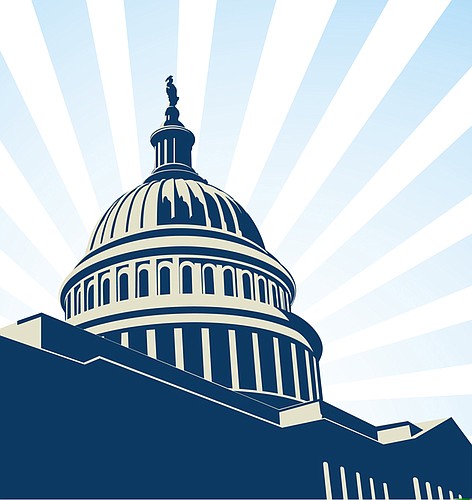- July 26, 2024
-
-
Loading

Loading

Tax breaks approved
for job creation
The Florida House approved a series of tax breaks designed to help small businesses and consumers and fan the young embers of economic recovery in Florida — continuing one of Gov. Rick Scott's campaign priorities from two years ago.
The bill increases the corporate income tax exemption from $25,000 to $50,000 as part of a broad economic-development proposal that includes tax breaks for aircraft repair, industrial machinery and equipment and agricultural packing houses. The tax breaks would keep about $121 million in Floridians' pockets that would have gone to taxes.
“The Florida House has demonstrated it knows what it takes to help grow private-sector jobs,” Scott said in a written statement about the entire bill, which passed 92-22.
Finance and Tax Chairman Steve Precourt, R-Orlando, said the increased exemption would keep nearly 4,000 Florida businesses from paying corporate-income taxes — clearly hitting small businesses.
In a separate bill, the House approved the annual sales tax holiday Aug. 3-5, aimed at back-to-school shopping. There would be no sales tax on clothing, shoes or other items less than $75.
More changes to state employee pensions
The state's public employee pension morass continues to evolve as lawmakers look for a solution that is both politically palatable and actually affordable.
The House Appropriations Committee approved a bill that allows police, firefighters and others to retire earlier and undoes some of the changes made just last year. Employees can retire at 55 or have 25 years of service for full benefits — changing last year's law that had upped it to age 60 or 30 years of service.
But the change came with a big proviso.
New employees would start with the pension plan but would be automatically switched within a year to a defined contribution plan -- such as the less expensive 401(k) that is common in the private sector — unless they choose to stay on the traditional pension plan.
The change comes after lawmakers got an earful about the lengthened time for retirement. The employees with high-risk jobs grudgingly accepted last year's requirement that they contribute 3% to their pension plans. But for first responders, adding years before being able to retire was a change too far.
The bill that is designed to be revenue-neutral.
The proposed changes have split public sector unions. Some locals argue that young employees will make short-term decisions and not plan for retirement, while the Police Benevolent Association favored the change so employees will be informed and have options.
Scott looks at governor's prison options
Now that the Florida Senate has narrowly killed a proposal to privatize prisons in the southern half of the state, Gov. Scott is considering his options to privatize some prisons without an act of the Legislature.
Backers of the idea have asserted all along that the governor has the unilateral authority to order privatization of prison operations through a bidding process.
In a press conference after the defeat of the bill 21-19, Scott said the prison privatization was not originally one of his priorities for the session, but that he was disappointed over its failure. “I got elected to hold government accountable, to not waste taxpayers' money,” he said. “I'm going to look at what I have the opportunity to do.”
But the state has had trouble even closing some prisons because of the good news that there are fewer inmates than expected. Prisons mean good government jobs for communities and so, like military bases, their closure is fought every time.
Closing a partially used prison in the Panhandle was already defeated this year. And the Department of Corrections plans to close the Hillsborough Correctional Institute this year, but the House put money in the budget to fund it anyway, and now there is a lawsuit filed to keep it open.
The Teamsters, representing 20,000 correctional officers, and other unions immediately criticized Scott for his decision to look at executive power to get savings out of the prisons.
Legislators still keen on green
Despite four years of dealing with budget cuts, a feeble economic recovery and ongoing problems with the insurance and legal industries, the Florida Legislature is finding time show its environmental awareness.
The House Finance and Tax Committee unanimously approved an energy bill aimed at creating more “renewable” energy in the state by offering tax exemptions and tax credits for certain types of renewable fuels -- such as solar and biomass.
The bill, and its companion in the Senate, include restoring tax exemptions that expired in 2010, allowing the Public Service Commission to consider fuel diversity when deciding if new power plants should be permitted and a study on the efficacy of Florida's current energy conservation laws.
What the bill does not do is set Politburo-style goals that Gov. Charlie Crist wanted when he pushed for 20% of the state's energy to come from renewable sources by 2020.
The primary backer of this bill is Agriculture Commissioner Adam Putnam, who in a letter mildly chastised the Legislature for never being serious about renewable energy. He called the bill a “modest step” toward more renewable energy.
“However weak, though, the legislation is a start in a tough political and economic climate,” Putnam wrote.
Now, on to that economy stuff!